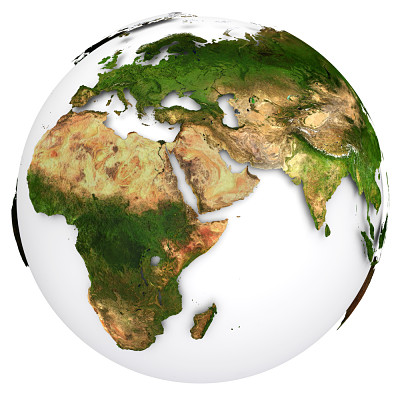Nigeria’s Struggle with Overpopulation

Home to about 170 million people, Nigeria is the world’s sixth largest country in terms of population and also one of the fastest growing. In 1950, its population was less than 40 million, meaning it has multiplied several times over in recent decades. With a population growth rate of two to three percent every year, Nigeria’s population is expected to continue to skyrocket.
By 2050, Nigeria’s population is expected to surpass that of the U.S. and could exceed 400 million. By 2100, it is forecasted to exceed one billion and could potentially surpass China; all living in a country about the size of Texas.
The effects of overpopulation are already acute. Lagos is currently one of the largest cities in the world with an estimated population of about 21 million. Since many people live in slums and the government has few resources to conduct an adequate census, the real population is unknown.
Most residents of cities like Lagos live in severely overcrowded slums. Many houses and apartments consist of just one room to house entire families. More than 50 people can share a bathroom, sink and living space. Youth unemployment in urban areas is around 50 percent. This has fueled an increase in crime which is rampant in many cities. This high level of youth unemployment has also helped fuel the rise of militant groups like Boko Haram.
Nigeria’s fertility rate is approximately 5.5 children per woman. The Nigerian government has made some effort to address the problem, but to no avail. It has made contraceptives free but many still do not have access to them and, in a religious society like Nigeria, their use is often frowned upon. Several government campaigns have aimed at encouraging people to have smaller families, but these have failed as well and are at odds with Nigerian cultural values.
Many societies in Nigeria have long valued large families as a sign of prestige and many cultures practice polygamous lifestyles. In some Nigerian villages, families with fewer than eleven children are considered small and incomplete.
This problem is very common in the developing world, where impoverished families view having more children as a plus as they can help the family earn money and do chores. Given high rates of child mortality, many feel the need to have larger families as a safe guard in case some children do not make it to adulthood.
Many other African countries are also experiencing population booms. Sub-Saharan Africa is the world’s fastest growing region in terms of population. Currently home to slightly fewer than a billion people and accounting for about twelve percent of the population, by 2100 it is expected to have more than four billion people and account for one-third.
Many fear this rise in population growth will fuel poverty, hunger and civil strife. But the problems will be particularly acute in Nigeria. While some view this increase in population as a potential for more economic growth and status as a global hegemon, many others fear the population boom will cause the country to collapse. The rise in population is likely to place greater strain on Nigeria’s already strained infrastructure and services and increase poverty, unemployment and political instability.
While Nigeria’s population boom certainly has potential benefits it also poses a serious threat if it is not brought under control and many feel the government is not doing as much as it could or should. If Nigeria were to collapse because of its population boom, it would be a disaster for the entire African continent given the country’s economic and political weight. Poverty and overpopulation are intertwined with one another and it is impossible to tackle one without tackling the other.
– Matt Lesso
Sources: NPR, The New York Times, This Day Live, U.N., The Washington Post
